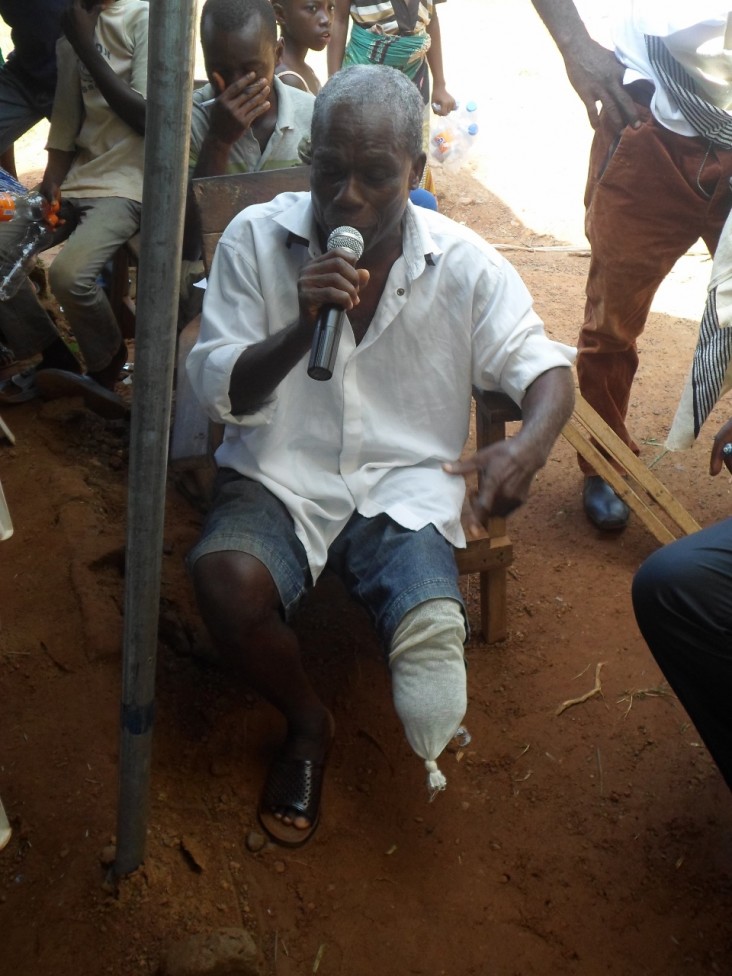
July 2015—Western Cote d'Ivoire cities are still deeply divided along political and ethnic lines following violent 2010 elections. Facilitating peace and reconciliation is a daunting task for Ivoirian authorities and civil society, but it is crucial to ensure nonviolent and inclusive presidential elections in 2015.
USAID, through its Office of Transition Initiatives, is building on results achieved by Côte d'Ivoire’s Truth, Dialogue and Reconciliation Commission, which supports victims of violence as they share stories of hardship, survival and sacrifice—a process that develops a path to forgiveness. Recognizing past atrocities and moving past them is necessary to achieve peaceful upcoming elections.
Communities identified radio as an ideal communications tool to help heal and rehabilitate citizens fatigued by cycles of violence. In January 2015, USAID funded a three-day workshop for local radio stations to build technical skills to produce radio programs on reconciliation and peacebuilding. The stations are staffed with journalists who are well-versed in conflict issues and understand the region’s ethnic diversity.
“Politicians used the media to aggravate the crisis and divisions between communities. I am delighted that today this same medium is being used to promote peace and reconciliation.” said Gnagne Richmond, deputy mayor of Duékoué.
With USAID support, the town’s Radio Guémon arranged a series of community forums for victims to share their suffering and hopes for a better future. Many participants desire a community enriched by ethnic diversity and shared values. This platform offered insight into the recurrence of violence in the community and ideas on how all people could participate constructively in the ongoing healing process.
During the forums, many community members publicly committed to forgive their neighbors. “I will use this opportunity to forgive the young lady who insulted me during the crisis, calling me a foreigner and a rebel who should go home because I’m not from here,” said Kourouma Aïssata. “I’ll call her to say that I have forgiven her.”
The discussions were recorded and later aired, with listeners invited to call in. Community members now view local radio as an important factor in fostering tolerance in a post-conflict environment.
“We’ve waited a long time for our radio stations to come to us,” said Sanhan Benoit of the local peace committee. “Thank you for giving us the opportunity to talk constructively.”
LINKS







Comment
Make a general inquiry or suggest an improvement.